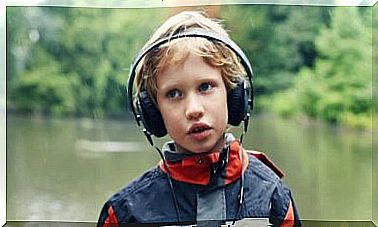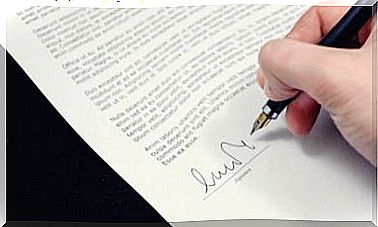The 4 Forms Of Psychological Aggression In The Partner

In the world of affections, borders are often very subtle. In all forms of love, especially romantic love, there is also a component of hostility and conflict. This is unavoidable. The problem is that, sometimes, that hostility and that conflict turn into psychological aggression in the couple, without sometimes this leaving marks at the beginning that alert the person or the environment.
Psychological aggression in a partner takes many forms. Some of them are barely perceptible, since they are camouflaged behind a joke or some claim that at first seems reasonable. There are also loose comments, ironies or disqualifications that in isolation seem harmless, but that together become a form of violence.
Threatening, imperative attitudes, as well as subtly humiliating or offensive comments, take their toll. They tend to generate dull resentments, guilt, or deplete self-esteem and undermine confidence. As this psychological aggression in the couple is also seasoned by manifestations of affection and passion, they are often allowed to pass. These are some of their expressions.

1. Dominance, one of the forms of psychological aggression in the couple
Dominance includes all attitudes and behaviors that tend to intimidate the other. There is room for explosive anger, screaming, lack of control and everything that in one way or another generates fear in the other person. It constitutes one of the forms of psychological aggression in the couple.
Many times this type of aggression is covered up under pretexts or erroneous ideas, such as that whoever acts like this does so because “they have a strong temperament.” It is also very frequent that the aggressor ends up accusing the partner of his own lack of control : “If you had not done this or that, I would not have been angry.”
2. Restrictive control
Restrictive control has to do with the attempt to set limits or put conditions on the partner’s behavior. Attitudes such as getting upset because the other sees certain friends or because they carry out certain activities are part of this psychological aggression. Control is very often expressed as frequent attempts to generate guilt in the partner.
These types of aggressions also tend to hide behind phrases such as “it is for your good” or “if you want things to work well you must do this.” That is to say that, apparently, the aggressor acts in this way looking for a good for the couple or for the relationship. However, the greatest assets are born from respect, not from conditioning.
3. Hostile withdrawal
Hostile withdrawal has to do with the partner’s evasive, elusive and / or abandonment behaviors. Sometimes it is expressed simply as a great indifference to what the other feels or needs. Your worry, your pain, your triumphs, or whatever is being ignored or minimized. It is as if what happened to him had no repercussion on the couple.
This form of psychological aggression in the couple also manifests itself with attitudes of abandonment. These take place when the aggressor frustrates the expectations of the other or refrains from giving him his company and support, knowing that he needs it. In turn, at other times it is there, firm. This obviously becomes confusing and constitutes a form of covert violence.

4. Denigration
Denigration is the most obvious form of psychological aggression in the couple. It means to disqualify or question the value of the other. Many means are used to do so. Sometimes she understands very direct comments or opinions, like “With that dress you’re wearing, I’m ashamed to be seen in public.”
Other times the comments are made in a more underground way, in the style of: “Lucky you, you talk nonsense and people laugh.” There is no major difference between one form of aggression and another, since its effect is ultimately the same.
The psychological aggression in the couple leads to emotional distress. This is a vague state of nonconformity, in which there is discouragement, anger and anxiety, without being able to define exactly the source of all this. This, in turn, has effects on concentration, productivity, and social relationships. Therefore, this type of violence is not admissible under any circumstances.









